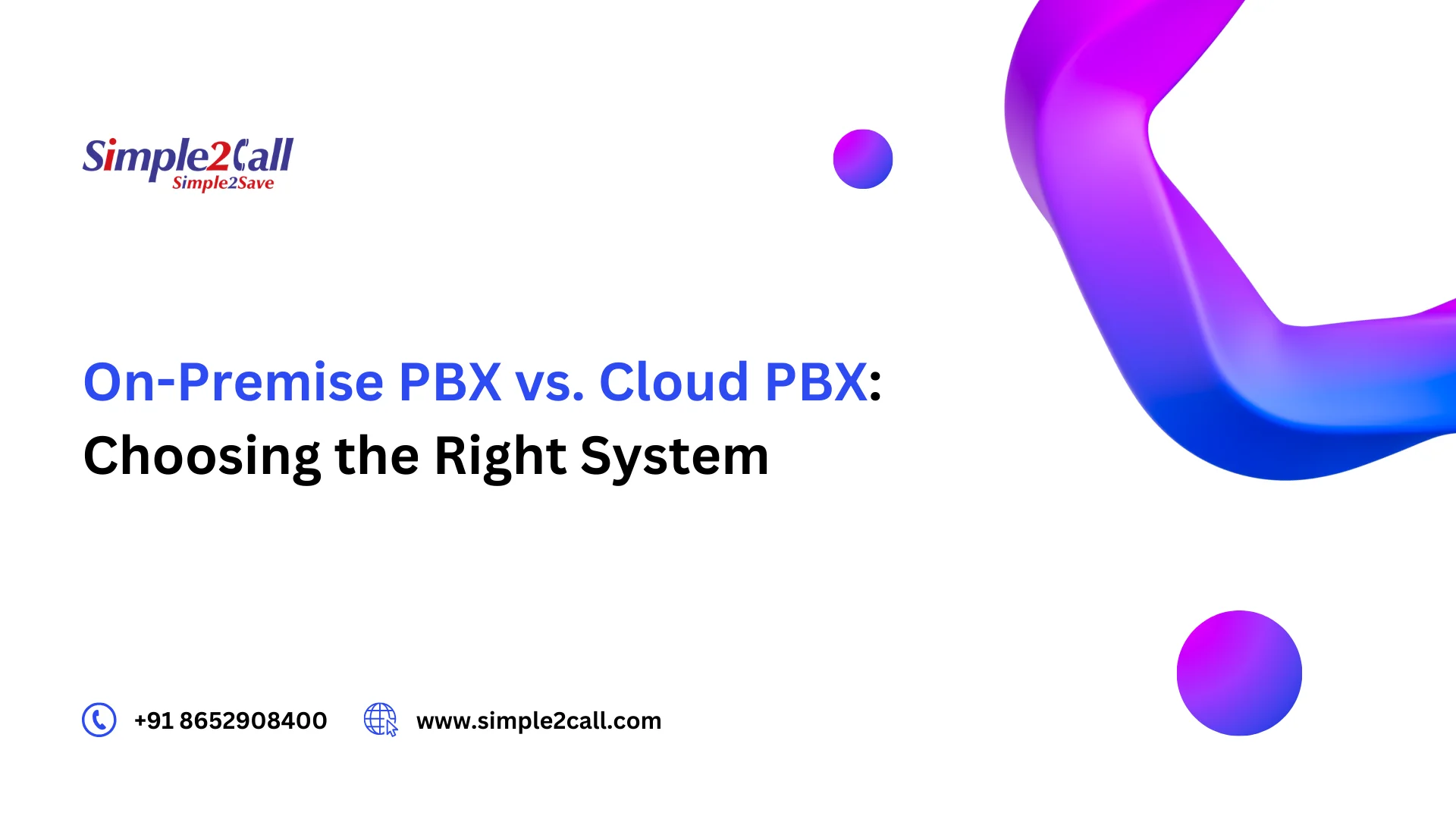
January 17, 2024 - 8 Min Read
On-Premises PBX vs. Cloud PBX: Choosing the Right System
Communication is at the core of every business. The way companies talk to each other and the world around them can have a big impact on their success, efficiency, productivity, and customer satisfaction. One of the most important decisions a business has to make is which phone system they want to use. At the moment, most companies are stuck between an on-premise PBX or one that's based in the cloud.
Understanding On-Premises PBX
On-premise PBX is a type of phone system that's installed on your company's own premises. That means you have physical stuff like servers, switches, and phone lines that make and take calls inside your business.
Benefits of On-Premises PBX
- Full Control: Because the system is in-house, the company has full control over the software, hardware, and settings. This gives them the ability to customize the system to fit their specific business requirements.
- Security: Some companies, especially those dealing with sensitive information, like to keep the system on-site for better management and security.
Cost-Efficiency in the Long Run
Setting up the system can be pricey, but it's worth it in the long run if you want to keep it up and running, especially if you're a big business. However, On-Premises PBX also has its share of challenges:
- Upfront Costs: The initial investment required for hardware, software licenses, and setup can be substantial.
- Maintenance and Upkeep: The organization is responsible for maintenance, updates, and ensuring hardware and software remain in optimal condition.
- Scalability Challenges It can be complex and costly to scale the system as the business grows, potentially causing limitations.
The Rise of Cloud PBX
Cloud PBX, on the other hand, is a type of PBX that's hosted and managed by a third party. It's also known as a "Virtual PBX". Basically, the whole communication system is in the cloud, and you can access it through the Internet.
Benefits of Cloud PBX
- Scalability: Cloud PBX is really flexible. It's super easy for businesses to add or take away phone lines or features depending on what they need. That's great if you're growing your business.
- Cost-Efficiency for Small Businesses: Small businesses don't have to break the bank to get started with a cloud PBX. They can get all the benefits of B2B communication without spending a fortune.
-
Flexibility and Mobility: Your employees can use the phone
system from wherever they are, which makes it easier for them to
work from home and helps keep your business running smoothly.
However, Cloud PBX also has considerations to keep in mind:
- Dependence on the Internet: A stable Internet connection is crucial for uninterrupted service. Downtimes or slow Internet can affect communication.
- Monthly Costs: While it eliminates high upfront costs, there are ongoing monthly service charges that accumulate.
- Customization Limitations: Complete customization might be limited as you are using a provider's existing infrastructure.
Cloud-Based PBX and Voice over Internet Protocol (VoIP)
Now that we've covered the big differences between on-prem and cloud PBX let's move on to VoIP. Keep in mind that "Cloud PBX" and "VoIP" are sometimes used synonymously, but that's not the case here.
What is VoIP?
VoIP is a way of making phone calls over the internet. Instead of using a regular phone line, VoIP uses digital voice data to make and receive calls.
Cloud PBX Providers
If you're looking for a cloud PBX provider, Simple2call is the way to go. They provide complete solutions that fit right in with your contact center's existing operations. With Simple2call, you get cloud-based voice-over-Internet Protocol (VoIP), fast installation, and easy expansion. Plus, you can connect all your operational systems to give your customers a smooth experience. With over 20 years of experience, Simple2call has created a cloud-based PBM and VoIP solution to streamline call management in contact centers. Our unified CRM platform is designed to boost call center productivity and integrate with a bunch of Simple2call products, making agents more productive and customers happier. Buying new PBX solutions from the cloud saves time and money and makes the experience better for customers and agents.
Making the Decision
The decision to choose between an On-Premises PBX and a Cloud PBX hinges on various factors that demand careful consideration:
- Budget: Consider initial costs, maintenance costs, and the overall budget your organization can allocate.
- Size of the Organization: Large enterprises might opt for on-premises for control, while smaller businesses often find the cloud more cost-effective.
- Required Features: Evaluate the features each system offers and match them with your business requirements.
- Data Sensitivity: Assess the sensitivity of your organization's data. If dealing with highly confidential data, on-premises might be a preferred choice.
- Predicted Growth: Anticipate your organization's growth. If rapid expansion is expected, a Cloud PBX can be more accommodating.
Basically, the best option for your organization depends on how big it is, how much it costs, how secure it is, and how much control you want to keep. Both On-Premises and Cloud PBX have their pros and cons, so it's important to understand how each works and how it fits with your business goals to make the right choice. In today's digital world, where communication is the key to success, choosing the right PBX for your organization can make all the difference.